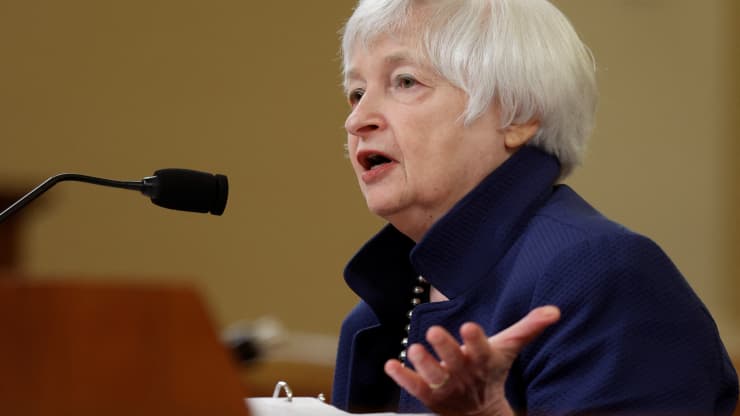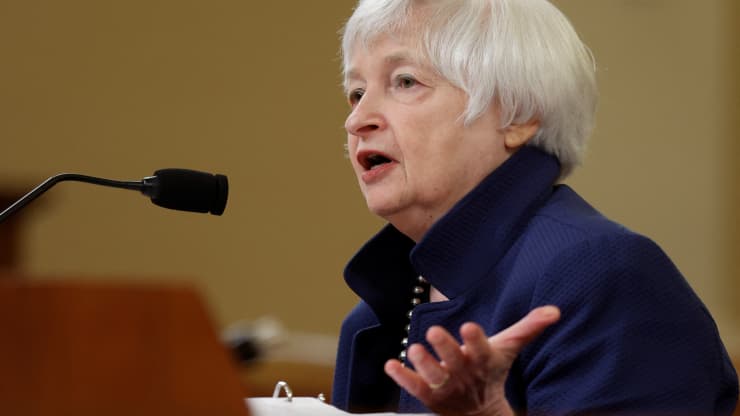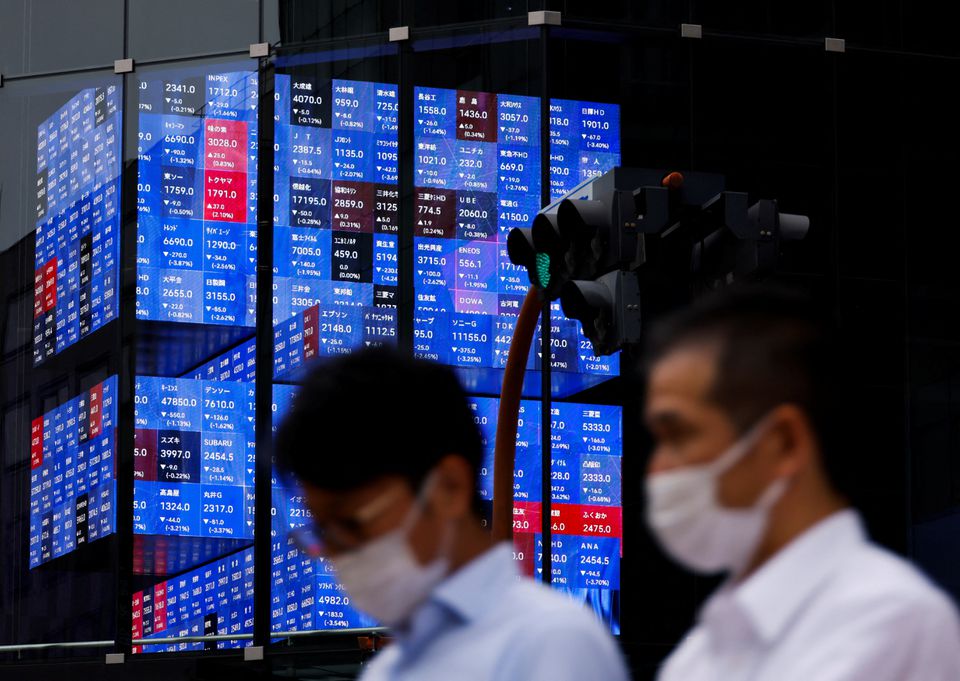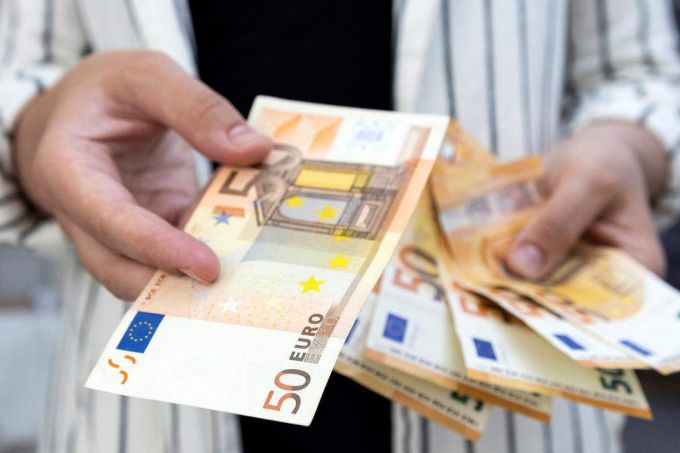WORLDWIDE: HEADLINES
Treasury’s Yellen, Japan’s Suzuki To Discuss More Sanctions On Russia, Weak Yen

U.S. Treasury Secretary Janet Yellen will discuss ways to further strengthen Western sanctions against Russia over its war in Ukraine when she meets with Japanese Finance Minister Shunichi Suzuki on Tuesday, the Treasury Department said.
Yellen’s meeting will also focus on working with Japan and other trusted partners to build stronger and more resilient supply chains to help lower prices for consumers in the United States, where inflation is running at 40-year highs, it said.
A comprehensive agenda will also include currencies, a Japanese official said, as the yen hit a fresh 24-year low beyond 137 yen to the dollar on Monday, adding to concerns about the rising cost of living.
“Currencies will be discussed as one of various issues,” the official said speaking on condition of anonymity.
Yellen will describe steps Washington is taking to address inflation, while sharing her view that the U.S. economy remains very strong, given the robustness of the U.S. labor market, the official said.
Full coverage: REUTERS
Yellen Sees U.S. Economy As Very Strong Despite Inflation – Senior Official

U.S. Treasury Secretary Janet Yellen will emphasize the strength of the U.S. economy despite high inflation and a 1.6% annualized drop in first quarter gross domestic product when she meets with Japanese Finance Minister Shunichi Suzuki on Tuesday, a senior Treasury official told reporters.
Yellen will describe steps Washington is taking to address inflation, while sharing her view that the U.S. economy remains very strong, given the robustness of the U.S. labor force and close-to-record unemployment rates, the official said.
Full coverage: REUTERS
WORLDWIDE: HEADLINES
Asian Stocks Track Wall Street Gains Ahead Of U.S. Payroll Data

Asian shares fell on Tuesday, weighed down by the prospect of further monetary policy tightening by central banks, China’s renewed COVID outbreak and Europe’s energy shortage, which also left the euro a whisker from parity with the safe haven dollar.
MSCI’s broadest index of Asia-Pacific shares outside Japan (.MIAPJ0000PUS) fell 0.8% to its lowest level in two years, while Japan’s Nikkei (.N225) lost 1.75%.
The euro fell as low as $1.0006 against the U.S. dollar, moving ever closer to parity for the first time since December 2002, as investors worry an energy crisis will tip the region into a recession.
“Risk-off sentiment is dominating global markets,” said Yuting Shao, macro strategist at State Street Global Markets.
“The dollar is the go-to international reserve currency. So when there is a recessionary risk or there’s pickup of volatility, the greenback is the currency that people rush to because that is the safest,” Shao added.
The dollar index , which tracks the currency against a basked of six peers rose to 108.47, the highest since October 2002.
Full coverage: REUTERS
Euro Teeters On Brink Of Parity Amid Recession Risks

The euro hovered close to a 20-year low near parity to the dollar on Tuesday amid concerns that an energy crisis could tip Europe into recession, while the U.S. Federal Reserve continues to aggressively tighten policy to curb inflation.
The single currency fell as low as $1.0006 on Monday, the lowest since December 2002.
The dollar index – which measures the greenback against six major peers, with the euro most heavily weighted – was also little changed at 108.17, following its surge overnight to the highest since October 2002 at 108.26.
The biggest single pipeline carrying Russian gas to Germany, the Nord Stream 1 pipeline, began annual maintenance on Monday, with flows expected to stop for 10 days.
Governments, markets and companies are worried Russia might extend the shutdown because of the war in Ukraine, exacerbating the continent’s energy supply crunch and potentially speeding a recession.
Full coverage: REUTERS
Oil Slides As Renewed China COVID Curbs Temper Fuel Demand Outlook

Oil prices fell on Tuesday as fresh COVID-19 curbs in China, the world’s biggest crude importer, and fears of a global economic slowdown weighed on the fuel demand outlook.
Brent crude futures for September fell $1.35, or 1.3%, to $105.75 a barrel by 0305 GMT, while U.S. West Texas Intermediate crude for August delivery was at $102.64 a barrel, down $1.45, or 1.4%.
“Growing fears of a recession and continued sluggish demand in China are pulling oil prices lower, though the current supply-demand balances remain precarious,” analysts from consultancy Eurasia Group said in a note.
Multiple Chinese cities are adopting fresh COVID-19 curbs, from business halts to lockdowns, to rein in new infections as the highly infectious BA.5.2.1 subvariant has been detected in the country.
Full coverage: REUTERS